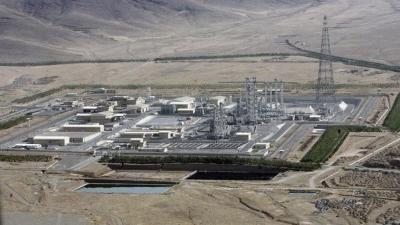President Trump’s threats to bomb Iran and its nuclear facilities constitute a violation of global security agreements, particularly those concerning nuclear plants and facilities. Such threats involve the risk of thousands of deaths, many more injured, and devastating destruction of the country’s economic and ecological foundations. Bombing nuclear facilities that contain 60% enriched uranium is tantamount to a nuclear attack. Detonating such systems is not much different from using atomic weapons and committing mass murder. Furthermore, in the event of such an attack, the covert use of nuclear weapons under the cover of radioactive enriched uranium is entirely plausible. An explosion of this nature could cause horrific levels of mass death and injury, and in addition, lead to widespread contamination of water, soil, animals, and plants over vast distances.
Stéphane Dujarric, the spokesperson for the United Nations, in response to a question on Tuesday about the U.S. President's threat to bomb Iran if a new nuclear agreement is not reached, stated:
“The United Nations urges all its members to refrain from provocative statements.”
He also said:
“The UN Charter is comprehensive and requires that all disputes be resolved through diplomatic solutions.”
Today, it seems as if no law, regulation, or agreement remains to restrain bullying of weaker nations. Going down this path leads humanity toward a struggle for survival, violence, and chaos across the global society. No nation has ever considered such an attack on their country as beneficial to them. An attack of this kind on any part of Iran is an attack on all of Iran.
In these economically and politically difficult times, when our people are struggling against a chaotic and incompetent regime for their human rights, they will never see an assault on the country’s economic infrastructure as anything but hostility toward themselves. Our people seek peace, freedom, and prosperity. These desires stand in stark contrast to the deepening of wartime conditions, killings, and destruction in the country. More than any other nation in the Middle East, Iranians wish for friendly relations and constructive cooperation with the United States and Europe. The people of Iran aspire to a progressive society akin to modern, democratic Western nations. Threats of inhumane aggression against these people only foster enmity and are to be condemned.
Iranian people mostly oppose investment in nuclear facilities and seek the shutdown of problematic sites and reaching an agreement with the United States through negotiation. The people of Iran are not enemies of America, Israel, or any other country. They want Iran to be a place to live in peace, stability, and prosperity.
The Iranian government, despite the aggressive and disrespectful demands of Mr. Trump’s administration, must, in line with the will of the people, accept direct negotiations with the United States. The involvement of other governments, whether as mediators or negotiating parties, can complicate matters now. Some governments see the normalization of U.S.-Iran relations as against their interests and obstruct the process in various ways. Even if the other side presents unacceptable demands, the only proper way to deal with them is to sit at the negotiating table and determine the response and path forward.
Clearly, in this "jungle" called the world, every country must be able to defend itself against evil. Weakening Iran’s defense capability is equivalent to paving the way for a defenseless attack on our country. The Iranian government cannot disregard the people's will to be equipped with effective defense capabilities, along with diplomatic relations that ensure security with all countries in the region, including Israel, and all governments in the world, especially the U.S.
The greatest threat to the country’s security is tension and conflict with other states and hostility toward the people of Iran. Security, above all, depends on providing a safe, free, and prosperous life for the people.
In these dangerous times, a government that dodges responsibility by offering superficial criticism of state institutions and neglects to be accountable to the people becomes a source of danger itself. The government is obligated to pursue direct negotiations and to make them happen. The Supreme Leadership, by tying the nuclear facilities issue to its ideology, has strapped a suicide belt around Iran’s waist. This belt must be unfastened before our people are subjected to an irreparable catastrophe. Direct, unconditional negotiations are the most effective path toward reducing tensions and resolving the specific nuclear issue.

Add new comment